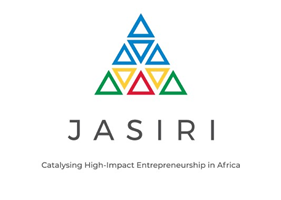As the punishing weight of thousands of sanctions looms heavily over Russia, isolating it on the global stage, a major event unfolding in St. Petersburg last month has shown the Kremlin’s ability to assert its diplomatic influence, particularly with African countries.
This resilience and strategic manoeuvring were visible at the Russia-Africa Summit, where 49 African countries, including 17 heads of state, were present, an emphatic testament to Russia’s strength in diplomatic arenas. Moscow’s strategy seems to be paying dividends as the two-day Summit had a clear undertone – to impress upon African leaders the alleged ‘proxy war’ being waged by the West under the guise of Ukraine’s ongoing crisis.
The Russians seem to have been successful in this, with the symbolic double-headed eagle – a national icon of Russia – a testament to their successful diplomatic overtures.
Dating back to the Berlin Conference of 1884-85, where Western countries met to divide Africa’s resources amongst themselves, Russia stood as a notable absentee, refusing to participate in the colonial carve-up. This historical stance has ingratiated Russia with African countries, offering a narrative of solidarity that resonates deeply within the African continent. The recent Summit served as a platform for African leaders to express their growing frustration with the rules and regulations dictated by the Western world.
Most African leaders used the Summit as an opportunity to voice their desire for a departure from these imposed platforms, perceived as outdated and suffocating. In stark contrast, Moscow projects itself as a partner that respects Africa’s political economy and strategic policies, shunning any interventionist behaviour. President Vladimir Putin confirmed this non-interference posturing in a recent article published on the Kremlin’s official website.
“We have always strictly adhered to the “African solutions to African problems” principle . . . We have never tried to impose on partners our ideas about the internal structure, forms, and methods of management.”
The Summit’s structure offered an open space for exchanging strategic ideas rather than adhering to the usual formalities and performative niceties often observed at such international meetings. African leaders seized this opportunity to propose transformative economic strategies to benefit the continent’s future generations.
Among the leaders who made a notable contribution was Uganda’s President Youri Museveni. He argued that Africa must break away from its colonial economic roots, which restrict it to producing raw materials and crops.
He proposed an alternative vision: “What I want to propose to Russia and China is to discourage as a policy the importing of raw materials from Africa, to instead work with the Africans to add value at the source.”
This sentiment was echoed by Eritrea’s President, Isaias Afwerqi, who emphasised the need for an unambiguous strategy and effective mechanisms to strengthen cooperation between Africa and Russia. He stressed that “Africa must be ready to overcome the upcoming challenges for the betterment of the new generation of the continent.”
The host, President Putin, echoed these sentiments and assured African leaders of Russia’s firm stand against the unjust policies of the West, perpetuating the legacy of suffering in Africa from the colonial era. This commitment reflects Russia’s intention to base its relationship with Africa on mutual interests and respect.
In an unexpected development, Ethiopia’s Prime Minister Abiy Ahmed (PhD) arrived in St. Petersburg a day before the Summit, garnering a high-level reception from the Kremlin and a meeting with President Putin. Yet, his presence surprised many Ethiopians, given Ethiopia’s ongoing engagement with US-led Western entities.
The lead-up to the Summit was not without intrigue. A phone conversation between Ukraine’s President Zelensky to Prime Minister Abiy hinted at the possibility of outside influence, with some believing it had the fingerprints of Washington, DC. But the Summit concluded positively, underlining a burgeoning strategic partnership between Russia and Africa, seemingly undeterred by such manoeuvres.
As the geopolitical dance unfolds, the shifting alliances and strategies offer a glimpse of a possible new order in the making – one that sees Africa’s autonomy acknowledged and respected rather than controlled and exploited. Time will tell whether these alliances benefit the continent and its people.










